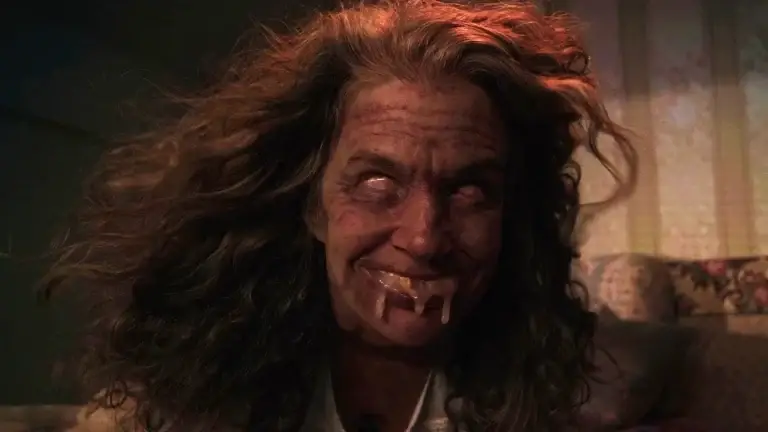
Overview
…no introduction necessary.
A wealthy New York investment banking executive hides his alternate psychopathic ego from his co-workers and friends as he escalates deeper into his illogical, gratuitous fantasies.
Review
Debuting in my initial top-25 horror movies of all time is American Psycho. The satire and comedy of this movie is what makes it stand out from others. There are so many unique themes in this movie that dissect corporate greed, consumerism, and the classic ’80s yuppie lifestyle. And rightly so. Psychopathy is a successful element when it comes to American capitalism and this film spotlights this.
Movie Themes
Some of the themes are highlighted below…
1. Consumerism and Materialism
The film satirizes the excessive consumer culture of the 1980s. Patrick Bateman, the protagonist, is obsessed with brands, appearances, and status symbols. His identity is defined by his possessions, and he places great importance on designer clothes, high-end restaurants, and luxury products. The highlights of this comes upon the comparison of business cards. Who has the nicest paper, the best fonts and embellishments.
2. Identity and Superficiality
The film explores the idea of a fractured identity and the superficial nature of human relationships. Bateman’s colleagues and acquaintances frequently confuse him with other people, highlighting the lack of genuine personal identity in their world. This reflects the idea that people in this society are interchangeable and defined only by their outer appearances.
3. Isolation and Alienation
Despite being surrounded by people, Bateman is profoundly isolated. His interactions are shallow, and he fails to connect on a meaningful level with anyone. This theme underscores the loneliness that can accompany a life focused solely on material success and superficial relationships.
4. Violence and Dehumanization
Bateman’s violent tendencies and the brutal acts he commits serve as a commentary on the dehumanizing effects of a society obsessed with wealth and power. His detachment from his own humanity is mirrored by the indifference of those around him, who fail to recognize or react to his increasingly erratic behavior.
5. Psychopathy and Social Commentary
The film delves into the mind of a psychopath, using Bateman’s character to critique the lack of empathy and moral disengagement prevalent in corporate culture. His inability to feel genuine emotions or remorse is a dark reflection of the sociopathic traits that can be rewarded in a capitalist system.
6. Gender and Misogyny
American Psycho also addresses themes of misogyny and gender roles. Bateman’s interactions with women are dominated by power and control, reflecting the patriarchal and often misogynistic attitudes prevalent in the corporate world of the 1980s. The film critiques the objectification and exploitation of women.
7. Reality vs. Delusion
The film blurs the lines between reality and Bateman’s delusions, leaving the audience questioning what is real and what is imagined. This ambiguity adds a layer of psychological complexity, suggesting that Bateman’s reality is as distorted and superficial as his personality.
8. Social Critique and Satire
The film uses dark humor and satire to critique the moral and ethical vacuity of the upper echelons of society. It exaggerates the absurdity of their obsessions and behavior to highlight the emptiness of their lives.
Final Thoughts
This is a multi-layered rich and brilliant film, based on the book by Bret Easton Ellis. Christian Bale is perfect in his role. Memorable scenes like him running nude down a hallway with a chainsaw and listening to Huey Lewis and the News and Genesis while prepping his victims are classic. American Psycho is a film to be watched repeatedly without diminishing returns.
I could write a small book on how much I enjoy this movie, but, alas, I need to return some video tapes.
Rating: ★★★★ (out of 5)









